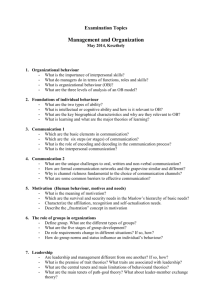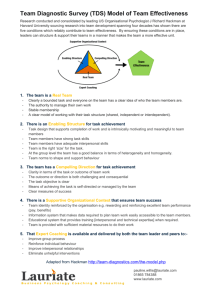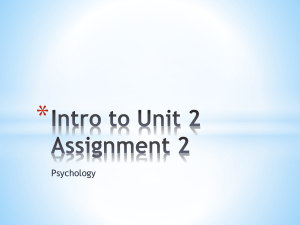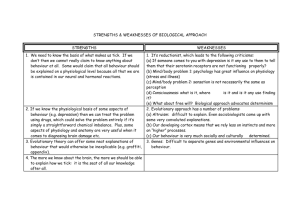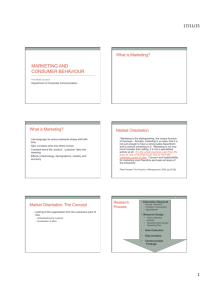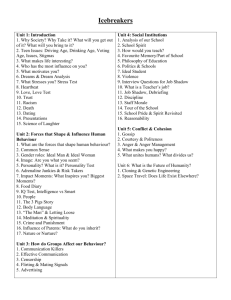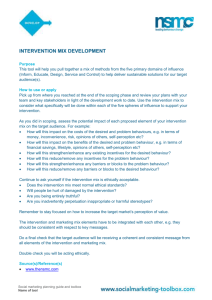Examination Topics
advertisement
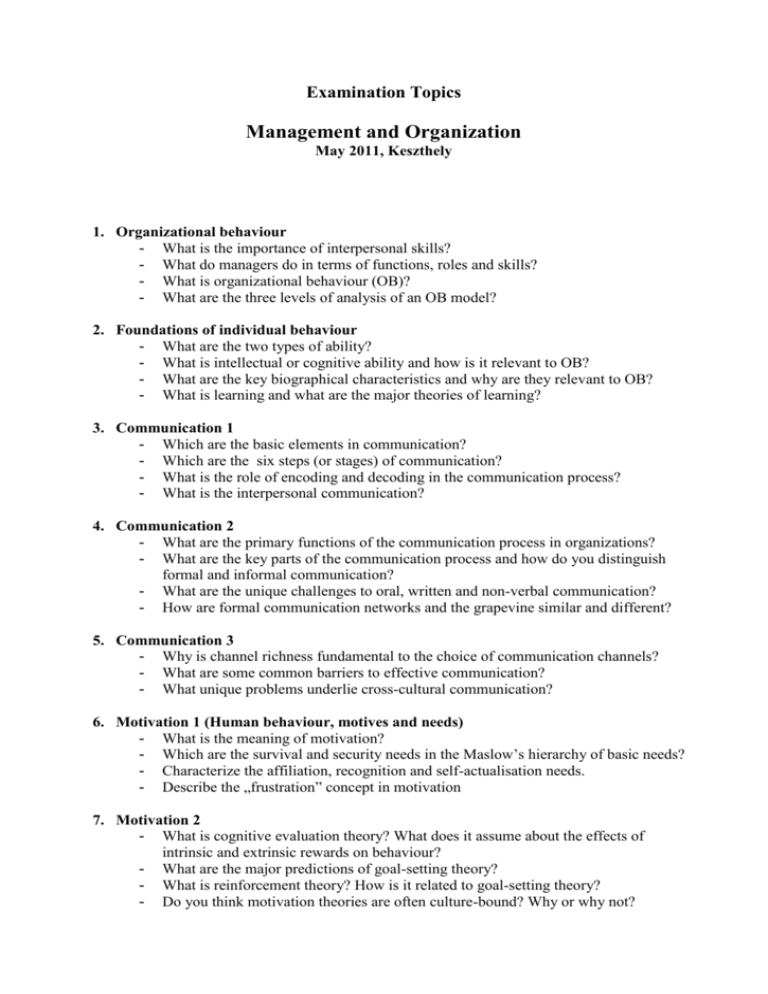
Examination Topics Management and Organization May 2011, Keszthely 1. Organizational behaviour - What is the importance of interpersonal skills? - What do managers do in terms of functions, roles and skills? - What is organizational behaviour (OB)? - What are the three levels of analysis of an OB model? 2. Foundations of individual behaviour - What are the two types of ability? - What is intellectual or cognitive ability and how is it relevant to OB? - What are the key biographical characteristics and why are they relevant to OB? - What is learning and what are the major theories of learning? 3. Communication 1 - Which are the basic elements in communication? - Which are the six steps (or stages) of communication? - What is the role of encoding and decoding in the communication process? - What is the interpersonal communication? 4. Communication 2 - What are the primary functions of the communication process in organizations? - What are the key parts of the communication process and how do you distinguish formal and informal communication? - What are the unique challenges to oral, written and non-verbal communication? - How are formal communication networks and the grapevine similar and different? 5. Communication 3 - Why is channel richness fundamental to the choice of communication channels? - What are some common barriers to effective communication? - What unique problems underlie cross-cultural communication? 6. Motivation 1 (Human behaviour, motives and needs) - What is the meaning of motivation? - Which are the survival and security needs in the Maslow’s hierarchy of basic needs? - Characterize the affiliation, recognition and self-actualisation needs. - Describe the „frustration” concept in motivation 7. Motivation 2 - What is cognitive evaluation theory? What does it assume about the effects of intrinsic and extrinsic rewards on behaviour? - What are the major predictions of goal-setting theory? - What is reinforcement theory? How is it related to goal-setting theory? - Do you think motivation theories are often culture-bound? Why or why not? 8. Motivation 3 - What is the job characteristics model? How does it motivate employees? - What are the three major ways that jobs can be re-designed? (In your view in what situations would one of the methods be favoured over the others?) - What are the three alternative work arrangements of flextime, job sharing and telecommuting? (What are the advantages and disadvantages of each?) - What is variable pay? What are their advantages and disadvantages? 9. The role of groups in organizations - Define group. What are the different types of groups? - What are the five stages of group development? - Do role requirements change in different situations? If so, how? - How do group norms and status influence an individual’s behaviour? 10. Conflict and negotiation - What is conflict and negotiation? - What are the steps of the conflict process? - What are the five steps in the negotiation process? - How does culture influence negotiations? 11. Foundation of organization structure - What are the six key elements that define an organization’s structure? - What is a bureaucracy and how does it differ from an simple structure? - What is a matrix organization? - Why do organizational structures differ and what is the difference between a mechanistic structure and an organic structure?
